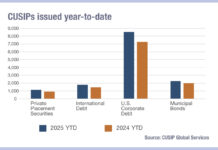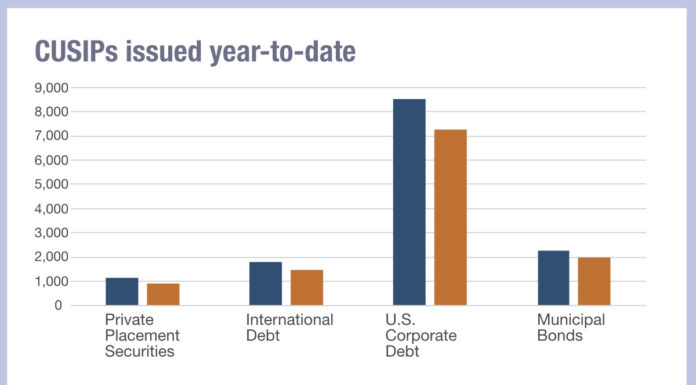
Bloomberg will make Credit Benchmark’s credit risk data – derived from the risk views of global financial institutions – available on the Bloomberg Terminal, and also for clients to license the data for an enterprise use case. The company will make this anonymised consensus data available alongside existing credit risk datasets and risk indicators, providing complementary content to help market participants assess the credit quality or risk of default of a counterparty, company or entity, all integrated within their existing workflows.
Access to Credit Benchmark data over the Bloomberg Terminal could potentially help support risk management, loan and debt underwriting, portfolio optimization, supply chain risk management, investment idea generation, and as a means of assessing ongoing credit quality.
“The broad coverage provided by Credit Benchmark will allow for easier credit assessment of non-rated companies, as well as provide a complementary point of information to existing analytics on the Bloomberg Terminal,” said Mark Flatman, global head of core product at Bloomberg. “As the data will be available in all of our workflow tools, it can easily be incorporated as an additional input to the decision process.”

Donal Smith, co-founder and chairman at Credit Benchmark, added: “In the current market environment our consensus view of credit quality has been a vital source of insight on where lenders see the biggest risks. We’re excited to be working with Bloomberg to expand availability of this intelligence to additional market participants.”
In addition to certain consensus data that will be made available to all Bloomberg Terminal subscribers at no additional charge, Bloomberg will offer a premium Credit Benchmark service that provides more granular data for analysis. This premium offering can be delivered over the Bloomberg Terminal (for desktop use), and can also be delivered as a machine-ready data file for enterprise-wide use through Bloomberg’s Enterprise Data service.
Separately, Lombard Odier Investment Managers, the asset management business of the Lombard Odier Group, has announced it will expand its use of Bloomberg tools, by taking the Bloomberg PORT Enterprise solution to support portfolio and risk management across multiple assets classes.
Lombard Odier IM is a long-standing client of Bloomberg’s order management system AIM, and integrated PORT Enterprise in 2019 to support performance attribution and risk management of its fixed income holdings. As a next step, the firm decided to expand its use of PORT Enterprise to include equity portfolio attribution calculation and thus unify portfolio and order management across its equity and fixed income asset management business, using Bloomberg’s buy-side solutions.

Alexandre Meyer, chief operating officer (COO) of Lombard Odier IM, said, “We’ve had a close collaboration with Bloomberg for many years, and it was a natural step for us to adopt PORT Enterprise. Using Bloomberg has enabled us to streamline our operating model by providing us with one infrastructure for our multiple workflows for equity and fixed income. Instead of having several separate systems, we now have all securities defined and disseminated in one way across our organization – this creates efficiencies and saves time. Furthermore, we were able to quickly and easily expand our use of PORT Enterprise thanks to the very stable production environment, despite the pandemic.”
“We are delighted to continue supporting Lombard Odier IM’s business, and work with them to optimize their investment and portfolio management processes,” said Ian Peckett, global head of buy-side Solutions at Bloomberg.
Lombard Odier IM also uses the Bloomberg Barclays fixed income indices as official benchmarks for multiple strategies. The Index families represent a key part of Bloomberg’s offering and also use the risk and performance models underlying PORT Enterprise.
Bloomberg recently announced a dramatic – and controversial – change to its fixed income pricing model in 2021, aimed at keeping its products in line with rival fixed income platforms.
©Markets Media Europe 2025

























